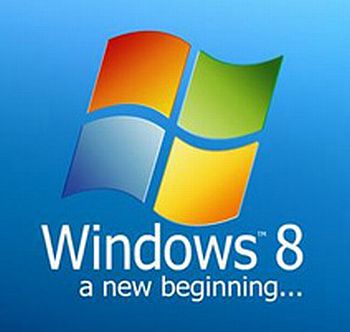Windows 8 To Offer PC Refresh With No Data Loss

Windows users will no longer suffer the pain of having to reinstall their computer’s operating system following a crash
Microsoft has confirmed Windows 8 will contain a refresh option that will automatically restore a PC to a factory fresh state, without losing the user’s data and customised settings.
Desmond Lee of Microsoft made the revelation in the Building Windows 8 blog.
Redmond is using the blog as part of its marketing drive to detail new features in the upcoming Windows OS, as it seeks to confront the tablet onslaught from Apple, as well as recover from the curse of Vista. That said, the sales success of Windows 7 has gone some way to help remove that dip in form, from Redmond’s conciousness.
Two Restore Options
Microsoft’s Lee used the blog to described how Windows users will be offered two ways of restoring their PC’s operating system back to pristine condition, in the advent of a major problem with the machine.
 These catastrophic failures are a bane for many Windows users, who often end up losing all their personal data and settings that are stored on their failed machine, and having to rely on backups (if they have any) to restore their personal data.
These catastrophic failures are a bane for many Windows users, who often end up losing all their personal data and settings that are stored on their failed machine, and having to rely on backups (if they have any) to restore their personal data.
“Many consumer electronic devices these days provide a way for customers to get back to some predefined “good” state,” wrote Lee. “This ranges from the hardware reset button on the back of a wireless network router, to the software reset option on a smartphone. We’ve built two new features in Windows 8 that can help you get your PCs back to a “good state” when they’re not working their best, or back to the “factory state” when you’re about to give them to someone else or decommission them.”
Lee described how Microsoft developers settled on two restore solutions for Windows 8:
Reset your PC – Remove all personal data, apps, and settings from the PC, and reinstall Windows.
Refresh your PC – Keep all personal data, Metro style apps, and important settings from the PC, and reinstall Windows.
The first ‘reset’ option is the most drastic and is essentially geared towards computers that are being decommissioned or sold onto someone else. The second ‘refresh’ option will likely be the option that most Windows 8 users utilise, as it allows them to restore their computer without having to backup all their data beforehand to an external hard disc drive.
All user accounts and passwords are also retained with this second ‘refresh’ option, as will wireless network connections, mobile broadband connections, BitLocker and BitLocker To Go settings, drive letter assignments, and personalisation settings such as desktop wallpaper.
Application Reinstall
However applications will not be preserved. According to Lee, the ‘reset’ option will only preserve Metro style apps. This means that desktop apps that do not ship with the PC are likely to have to be reinstalled manually.
Lee said the programmers did this for two reasons. The first was that in many cases there is a single desktop app that is causing the problems. And second, Microsoft does not want to “inadvertently reinstall ‘bad’ apps that were installed unintentionally or that hitched a ride on something good but left no trace of how they were installed.”
“Sometimes things can go wrong and you just want to get back to a good state quickly, while other times you might want to remove your data before giving a PC to another family member, employee, or co-worker,” wrote Lee. “With Windows 8, we’ve streamlined these processes and made them more accessible to customers with the new refresh and reset features.
Microsoft also posted a video on the blog, showing these features in operation.
Tough Sell?
Some analysts groups feel that Microsoft may be for a tough time convincing the desktop PC market to move up to Windows 8.
IDC for example feels that the operating system might not prove a blockbuster across both tablets and traditional PCs. “Windows 8 will launch with split success,” IDC analyst Al Gillen wrote in a 2 December tweet.
Redmond is currently gearing up to release the Windows 8 beta in February, which will likely result in a final release of the operating system near the end of the year.